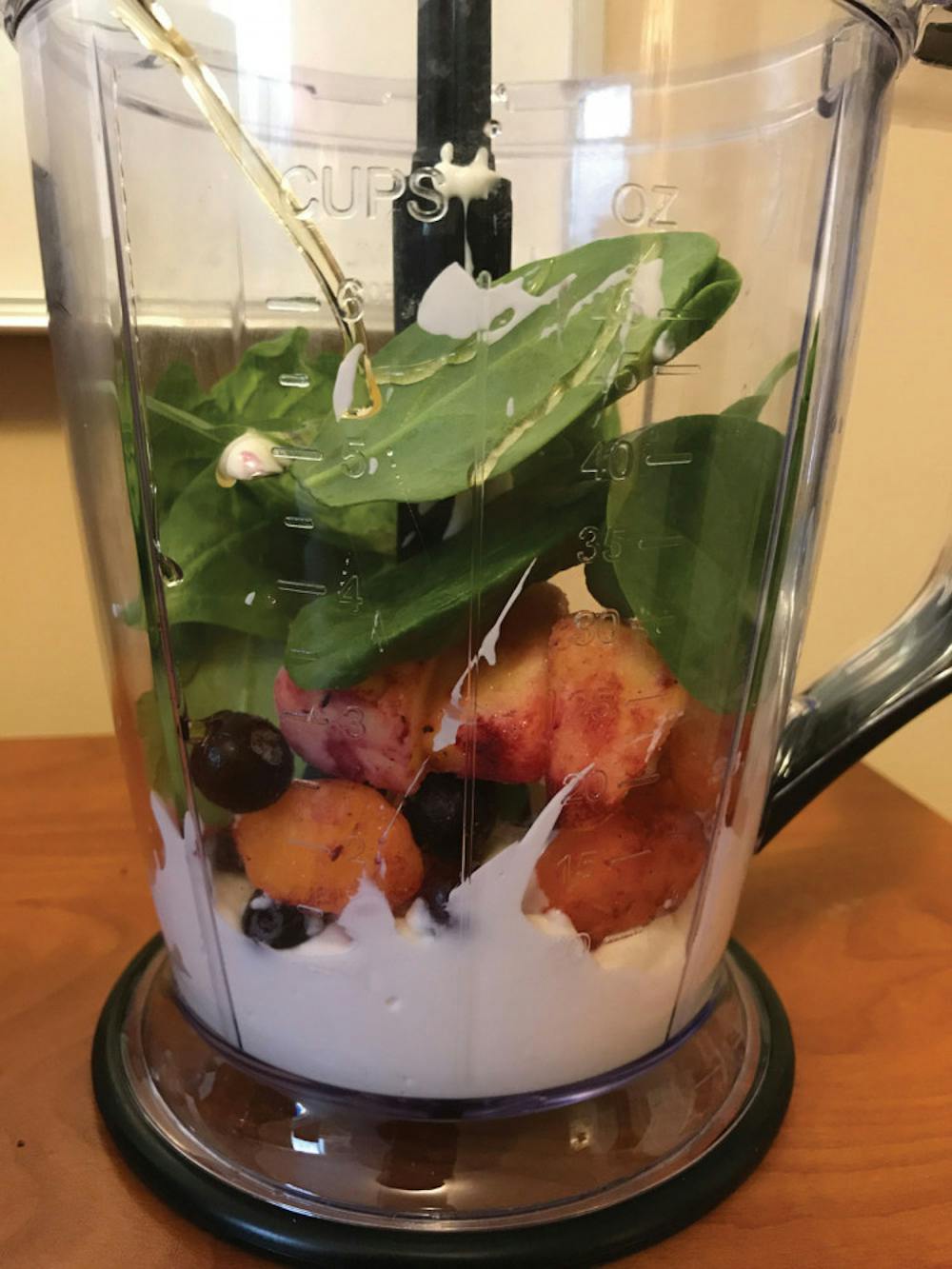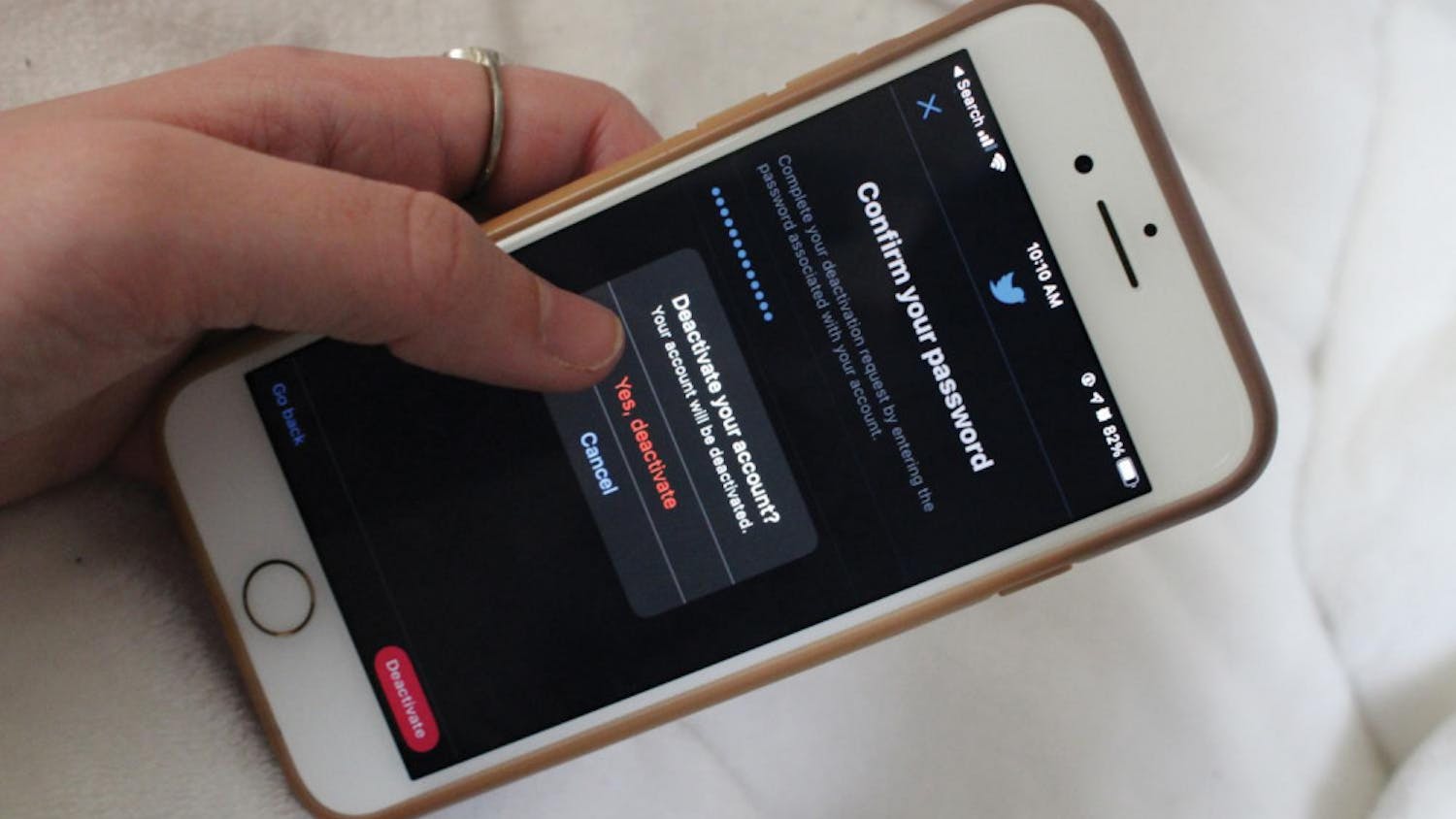One week ago I began an experiment to see what being a vegetarian on Mercer’s campus actually looks like. What I found was disappointing to say the least, but not at all surprising. If you are considering being vegetarian, here are a few things you should expect.
Ground Rules
I am on the $750 dining dollars meal plan and budget roughly $50 a month for groceries.
In my room I have a microwave, blender and mini fridge.
There are many types of vegetarian diets ranging from only fish (pescatarian), to no meat at all (vegetarian) to no animal products whatsoever (vegan). But all the websites I visited on how to start being a vegetarian agreed that a person should start with no meat and then work their way toward cutting out things like eggs and milk.
For the purposes of this experiment, I cut out chicken, pork, beef and yes, bacon. I did not cut out eggs or milk thus placing me inside the first ring of vegetarianism.
The Budget
I went to the grocery store about three days in and bought more fruits and vegetables than I have ever before and only spent $32. My shopping list included: tortillas, hummus, apples, pears, spinach, bell peppers, avocado, shredded cheese, canned vegetables, Greek yogurt, frozen fruit, and other meatless snacks like pretzels and candy.
I had always assumed that being vegetarian would be more expensive. And perhaps, if I were a more conscientious vegetarian I would buy organic products. But, again, for the sake of experimentation I stuck to the baseline of vegetarianism.
The Meals
The first three days before I went to the store, I ate on campus and in my room. I ate lots of bagels with peanut butter and cereal.
Once I went grocery shopping, a whole new world opened up to me. The first day I had a smoothie for breakfast and hummus veggie wraps for lunch and dinner. The second day was fairly similar except I made rice and beans with corn and other fun veggies like bell peppers and avocado.
These were my three go to meals for the week, fairly easy and gloriously colorful.
I did make eggs one morning and had coffee with creamer every day.
When I was not eating in my room I would venture out on campus to find vegetarian options, but there was very little to pick from especially since I have dining dollars instead of meal swipes.
The key was to find new ways to mix carbs (to fill me up) and protein sources (to keep me going).
Findings
As far as dining options go, I had the best luck at Einsteins. Bagels are certainly vegetarian, so ordering any of my favorites with peanut butter was easy.
I was most disappointed in the UC however. There are no full meals at Chick-fil-a that are vegetarian friendly—even the salads have chicken on them. Panda Express has one vegetarian option: a bowl with chow Mein and mixed veggies with spring rolls as the entree. I got this several times and was not disappointed.
I know the Fresh Food Company and Farmer’s Market have vegetarian options, but for someone using only dining dollars, those are expensive locations to find food and ultimately unrealistic. If I were to continue being vegetarian, I would need to upgrade my meal plan or eat primarily in my room in order to sustain myself.
As far as being hungry, switching from a meat-filled diet to a meatless diet left me constantly feeling hungry. I ended up snacking a lot outside of regular meals, as well as drinking more water to fill myself. However, I did feel more motivated, almost like an endorphin rush, and I slept better as well.
Reflection
One thing that surprised me during my vegetarian experiment was that I did not have to just eat fruits and vegetables for every meal. A common misconception about being vegetarian is that you must stop eating all junk food and carbs and only eat healthy. But that is not the case at all. I had popcorn, graham crackers, chocolate, etc. all week long!
Another thing that I did not foresee was how my friends responded to this change. I got a lot of questions asking me to defend why I wanted to be vegetarian. In one of my classes, we watched a documentary on the meat industry and its environmental effect on the world. Americans consume an insane amount of meat each day, and the mass consumption has detrimental effects on our Earth. I chose to experiment with being vegetarian to reduce my carbon footprint and contribution to mass consumption. After giving my explanation I got several responses to the effect of “Well, but that’s just how life is.”
Others were worried about me judging them for eating meat in front of me. When I went grocery shopping with one of my more supportive friends during this experiment she asked, “Are you judging me for how much meat I’m buying?”
The answer: no, not at all. This is a personal decision of mine, and I respect your decision to eat chicken too. Frankly, it did not bother me at all to see other people eating meat. I just knew that I did not want to eat meat myself.
After one week, I did quit being a vegetarian, and I do not think I would try it again. However, I have definitely decreased how much meat I consume each week. Although I had enough energy, I was constantly hungry. As a college student, running from classes to meetings to work, this diet just was not feasible for me. But, I loved the opportunity this gave me to find alternative meals and cook on my own.
I now have a newfound respect for those who are vegetarian, vegan, etc. Just because someone does something or believes something different from you does not mean they want you to do or be the same. We can all respect each other’s individual choices and beliefs without joining in.





